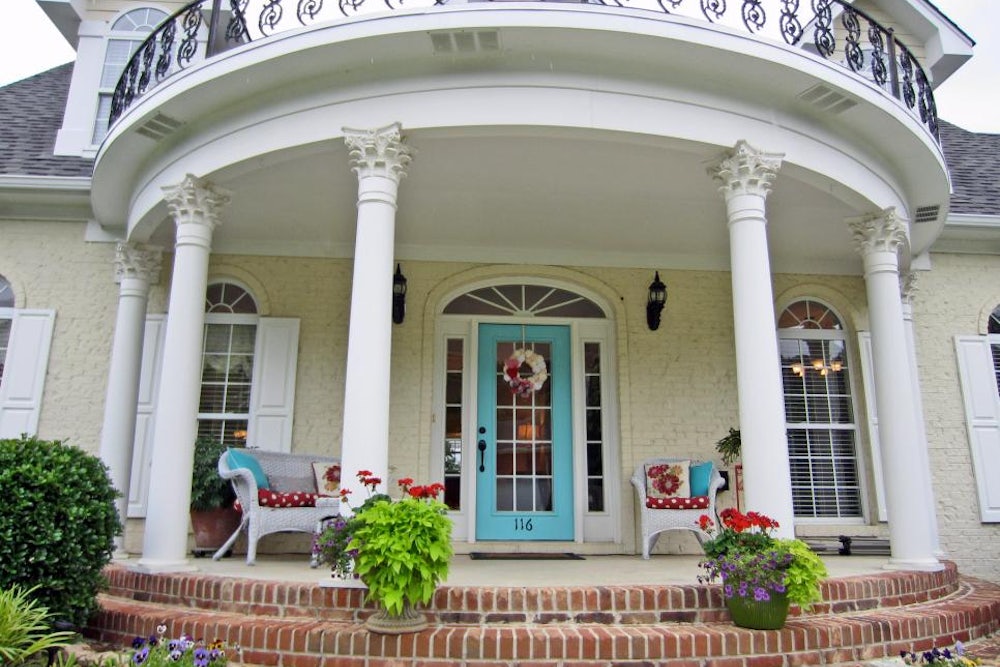The story of twenty-first-century TV, as it is often told, begins with Sex and the City and The Sopranos. All the antiheroes and high production values and complex plots and “sexposition” and “bottle” episodes, all the recaps and the recappers and the subscription streamers and the movie actors taking on TV roles and the TV writers pretending their shows are “visual novels” or “10-hour movies” and Tom and Shiv and Teddy Perkins and the “bad fans” and the Reddit threads and all that sweet, sweet prestige—it begins with what HBO decided to do right around the end of the twentieth century.
Of course, these shows are not the true and solitary origin point of all of these innovations; from NYPD Blue to Twin Peaks to Buffy, the features we now associate with “prestige TV” were in the works for decades before Tony and Carrie showed up. But the blazing successes of Sopranos and SATC—and their role in prompting HBO and all the other premium cable networks to reimagine their place in the TV landscape—made them legendary flashpoints.
But what about House Hunters?
Sex and the City debuted on HBO in June 1998; The Sopranos followed a few months later, in January 1999. In October of that year, Home and Garden Television premiered House Hunters, that fledgling network’s own massive, paradigm-shifting hit. It might seem counterintuitive to insist on speaking of a reality TV series that features a different realtor and different home buyers each episode choosing between three potential homes alongside two of the most acclaimed and influential television series of our time. That doesn’t make it wrong.
Earlier this year, HBO Max rebranded as “Max.” Most of the attention paid to that move surrounded Warner Bros.-Discovery’s abdication of the once-coveted HBO brand that Tony and Carrie helped build in the 2000s, as well as the company’s decision to sell off a decent number of HBO and HBO Max originals to avoid paying residuals to writers. But a less-discussed aspect of that rebrand and reboot is that Max now combines the streaming back catalogs of both HBO and HGTV. House Hunters, the great procedural real estate series of our time, now streams side by side with its rightful peers. You can watch the “Pine Barrens” episode of The Sopranos and then toggle immediately to a show about buying a mid-priced home in rural New Jersey; you can watch urban professionals try to find anything from Big’s Manhattan penthouse to Miranda’s modest home in (blech!) Brooklyn. From the real estate fantasies of Sopranos and SATC to the modes of attention that prestige TV rewards, the history of twenty-first-century TV can really be rewritten as a history of these three turn-of-the-century series. A McMansion in New Jersey, a brownstone apartment in the Upper East Side, and all the original hardwood floors in the whole entire world.
House Hunters was created by reality TV producers and real-life partners Tara Sandler and Jennifer Davidson. The couple—who now run the production company Pie Town—came up with the idea while on their own house hunt. The process of finding a new home with somebody else, having to articulate what you want to your partner, square that with what they want, and then put a monetary value on a manageable compromise seemed freighted with the sort of human drama that tends to set off fireworks on television. Sandler framed the genesis of the concept in telling terms: “Wow, this is really stressful. This could be a really good idea for a show.”
In many ways, this is still the ethos of HGTV’s real estate programming, whether it’s original recipe House Hunters, its numerous spin-offs, or any of the dozens of home renovation shows that have popped up in its wake. HGTV turns emotionally and psychologically draining situations—finding a place to live, doing massive home repairs—into comfortable, entertaining drama. It’s stressful, and it’s a really good show.
Every episode of House Hunters is more or less the same. Somebody needs a new place to live (often, but not always, they’re in the market to buy a house), and a realtor sets up three possibilities for them. We are introduced briefly to what these clients say they want—modern finishes or historical detail, move-in ready or a fixer-upper, room for entertaining, open-concept living spaces, an updated kitchen, those original hardwood floors—and we then follow them as they walk through and assess each space. Over the course of a tight 30 minutes—inclusive of commercial breaks—we see all three spaces, compare them, watch and wait for our protagonists to reach a final decision, and then, just as quickly as possible, we get hustled along to the next episode. And over and over. We play along, in other words, living vicariously through this saga. In some ways, it’s a kind of training manual for bourgeois lifestyle aspiration. We play the House Hunters game and, in so doing, we learn what to want, what holds value, what’s tacky, what’s chic, what a life should be. But we are also refreshingly detached from those desires, allowed to jump in and out of them episode by episode. House Hunters is best watched as a binge—that most twenty-first-century style of spectatorship. That was satisfying; who’s next?
Couples are the best. Although House Hunters features a wide array of clients, from single people to large families, the couple form is its bread and butter. (The show has, notably, gotten more diverse both racially and socioeconomically over its quarter-century on air.) While Sandler and Davidson are a same-sex couple, the show they built from their own real estate experience is animated—comedically and tragically—by a kind of granular, accumulated battle of the sexes. Every episode of House Hunters is a slow-motion, just barely subtextual fight between the couple at its center. There is no figure in contemporary television more sympathetic than a wife or girlfriend realizing what a prig her partner is, no glance more sharply meaningful than the one between her and the realtor who sees it too; meanwhile, there is no figure in contemporary television whose preposterous, pathetic arrogance is more loathsome than The Husband Who Uses the Phrase “My Money” When Referring to Their Budget in a talking-head interview. There is no more scathing indictment of heterosexual partnership than an average episode of House Hunters.
The Sopranos has some things to say about that too. As does Sex and the City. House Hunters, of course, is not really the same as those other shows. To insist on too pat a comparison diminishes all three. But House Hunters appeals to, flatters, and even occasionally tuts at the same set of concerns and desires as those other shows. Watching them alongside House Hunters, we see these classics of prestige TV through a convex mirror. The Sopranos is, among other things, a show about how the American dream is built upon sediments of fraud, grift, and heroic self-justification; House Hunters is a show about the literally never-ending churn of real estate, the molecular production of value, that debuted just a handful of years before the housing bubble burst. They are mythologies of Manifest Destiny in an age of sprawl.
Sex and the City is about the market logic of romantic love in the contemporary United States; House Hunters is about how, even after you couple up, it’s just markets after markets all the way down. Every protagonist on House Hunters is an antihero, a figure we may detest for their lack of insight or other on-screen crimes—stop complaining about wallpaper!—but whose anguish draws us in because it is not so dissimilar from our own. These people, they just want something. Is that really so bad?
The point of this comparison, though, is not to say that House Hunters is some shadow narrative of prestige television. Rather, it’s to say that the underlying cultural ferment that made way for The Sopranos and Sex and the City is the same one that made way for House Hunters. Their near-simultaneous conception is not an accident, but a sign.
In particular, as I’ve written elsewhere, the contemporary prime-time serial—a tradition of which both The Sopranos and Sex and the City are a part—is in lots of ways a product of and response to the moral panic around screen time that emerged in the early 1990s. Mostly born of concern about children, this panic quickly toggled toward adults as well, such that the looming specter of a zombified spectator, passively assailed by toxic, brainless, morally compromised TV images became a figure of great cultural worry. What was this type of commercialized, sugar-cereal television doing to our children? What was it doing to us?
The emergence of a culturally legitimated, prestigious, even artistic form of television production—or, at least, a form that was branded as such—seemed to address this predicament. Prestige shows traced their lineages conspicuously back to literature and film. Their plots were complex, nested, allusive, the sort of TV that demanded activity and attention rather than passivity. And, perhaps because they were so good for you, they could also afford to be a little bad for you as well. They were sexy, they were violent, they activated your senses and your intellect alike. This type of television trumpeted itself as good screen time.
In this framework, it might seem as though HGTV would offer precisely the kind of show the anti–screen time activists would hate. The network has variously been called background television, ambient television, or, in the network’s own framing, “shelter” TV. HGTV, from this point of view, traffics in generally pleasant shows with easily resolved crises that can pass in blue-sky blankness, whether they’re the focus of the living room or are simply playing while you cook dinner or pay bills. You very pointedly don’t have to pay attention to the Property Brothers or Chip and Joanna Gaines. They simply sell their lifestyle at you until you spontaneously decide to buy part of it at Target.
But I think this framing misses something about the appeal of House Hunters specifically. While it’s filled to the brim with integrated advertising, to be sure, there’s something unnervingly, charismatically direct about the show. The viewer of House Hunters has to be active, engaged, paying attention. The game-like aspects of the series ask viewers to watch carefully, to assign value to small differences, to exercise taste and discernment. Now this sense of taste is shaped by presumptions about “desirability” in real estate and about homeownership itself as a foundational and identity-forming goal, but it’s good exercise nonetheless.
The history of twenty-first-century TV, whether it’s Sex and the City or House Hunters, is not the story of a radical break from the folly of the past or the creation of something wholly new. The Sopranos is a soap, Sex and the City is a sitcom, HGTV makes procedurals. And TV is a commercial medium. “Follow the money,” as two great characters of the TV revolution—Lester Freamon and Donald Trump—have been known to say. Instead the story here is of a culture reconsidering the way it pays attention to TV—whether that attention is freighted with prestige or simply intensity. And House Hunters is as central to that narrative as any other show.
House Hunters may also turn out to be the most enduring offering of the Peak TV era that produced it. In 2023, HBO and other purveyors of prestige are dismantling the infrastructure that enabled the creation of shows like Sopranos and SATC. Writers’ rooms are gutted, and networks of apprenticeship are being quashed. And in an era of limited series, reboots, and franchise-based show development, the very idea of a six-season run of a (non-network) original series seems like science fiction. That kind of TV is hard to make, and it’s nearly impossible if executives don’t have the stomach to trust their writers’ expertise.
House Hunters, on the other hand, has always been easy. Episodes are cheap and quick to produce, and the formula is irresistible. (This isn’t a knock; it’s an explicit feature of the show’s pitch.) Watching it alongside its HBO platform-mates is to come to the realization that this is the future the Alliance of Motion Picture and Television Producers wants. They want to hit some of the same pleasure centers as those HBO series of yore, but they want to hit them fast and easy, without all the mucking around with artists, without the fine-grained management of tone and structure and subtext and internal reference that is the hallmark of the writers’ room.
Grotesque imaginings of fathomless, A.I.-generated seasons of narrative television start to sound like the—admittedly much more pleasant—fathomless seasons of House Hunters. Executives at HBO and Netflix and everywhere else seem invested in a future where the next big hit bears a much stronger resemblance to the automatic allure of House Hunters than the idiosyncratic brilliance of The Sopranos or Sex and the City.
A subplot on the first season of And Just Like That…, Max’s reboot of Sex and the City, is Carrie Bradshaw’s endless house hunt. At the end of the season, though, after condo after condo after condo, Carrie moves back into that famous brownstone apartment in the Upper East Side where we met her in 1998. After 24 years, the drama of Sex and the City had become the drama of House Hunters. And Carrie’s starter home turns out to be her forever home.






